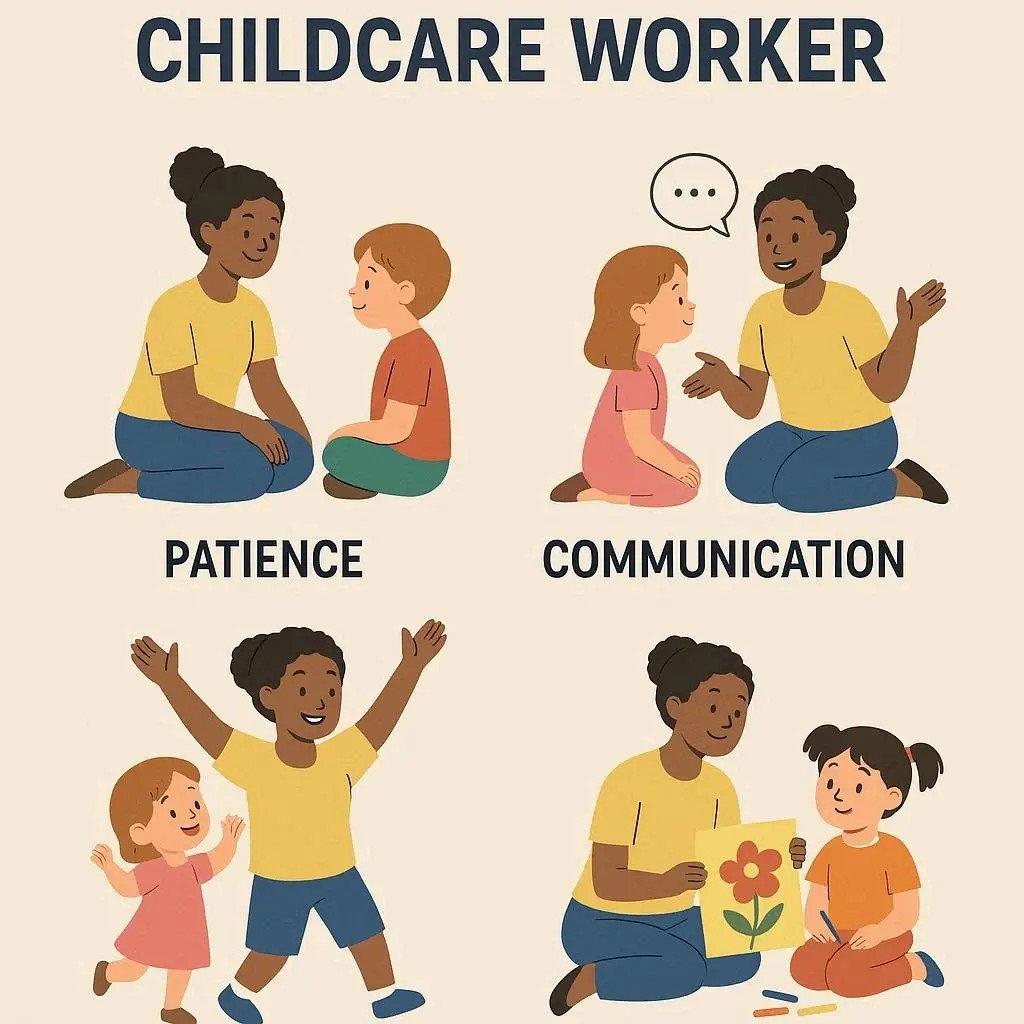Building the Foundation
A guide to the essential strengths and skills needed for a rewarding career in childcare. Discover the qualities that help shape future generations.

Core Strengths Explorer
A great childcare worker is a blend of many qualities. Click on each card to learn more about the foundational strengths that are crucial for success and well-being in this field.
Interactive Skill Importance
The importance of certain skills can shift depending on the age group you work with. Use the filters below to see how these priorities change. This visualization helps in understanding the nuanced demands of caring for children at different developmental stages.
Your Development Pathway
Strengths aren't just innate; they can be cultivated. Here are practical ways to develop and enhance the key attributes needed for a successful childcare career. Select a strength to reveal your path to growth.
Frequently Asked Questions
Strength vs. Skill: What's the Difference?
Understanding this distinction is key to personal development. Strengths are your natural talents, while skills are the tools you learn to use. A successful childcare provider nurtures their strengths and hones their skills.
STRENGTH (Innate Quality)
- An inherent personal attribute or talent.
- Example: Empathy – the natural ability to feel what others are feeling.
- Developed through self-awareness and practice.
SKILL (Learned Ability)
- A specific, trainable ability.
- Example: First Aid – a set of procedures learned through a course.
- Acquired through education and training.
Spotlight: Why is Patience Paramount?
Patience is more than just waiting; it's the foundation of a safe and nurturing learning environment. It allows a childcare worker to respond thoughtfully instead of reacting impulsively.
- Fosters Trust: A patient caregiver makes a child feel secure and understood, especially during challenging moments like tantrums or learning difficulties.
- Enables Learning: Children learn at different paces. Patience gives them the space they need to explore, make mistakes, and grasp new concepts without fear of judgment.
- Models Emotional Regulation: By remaining calm and patient, you teach children a vital life skill: how to manage their own frustrations and emotions effectively.